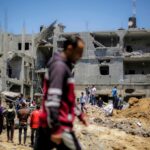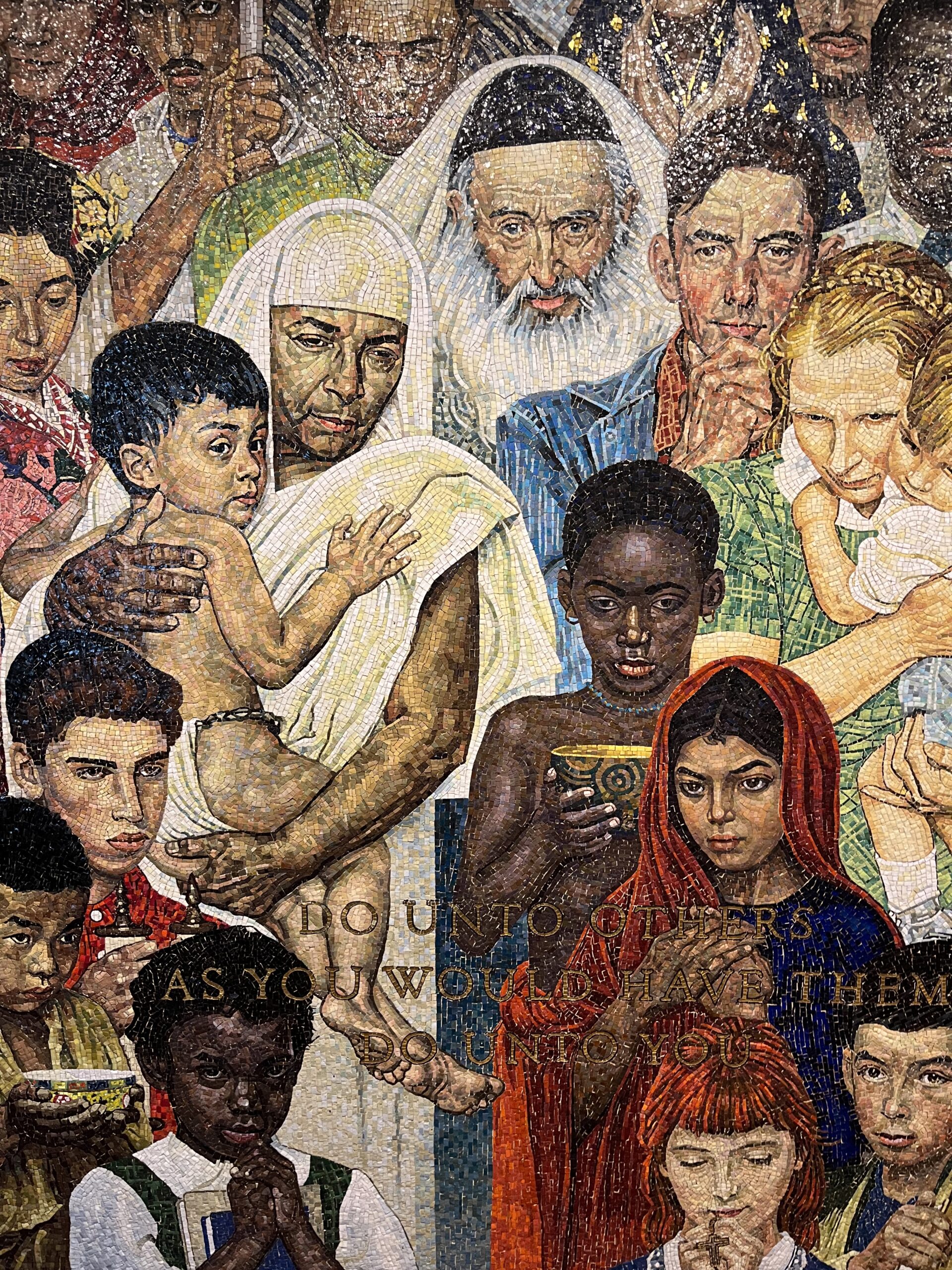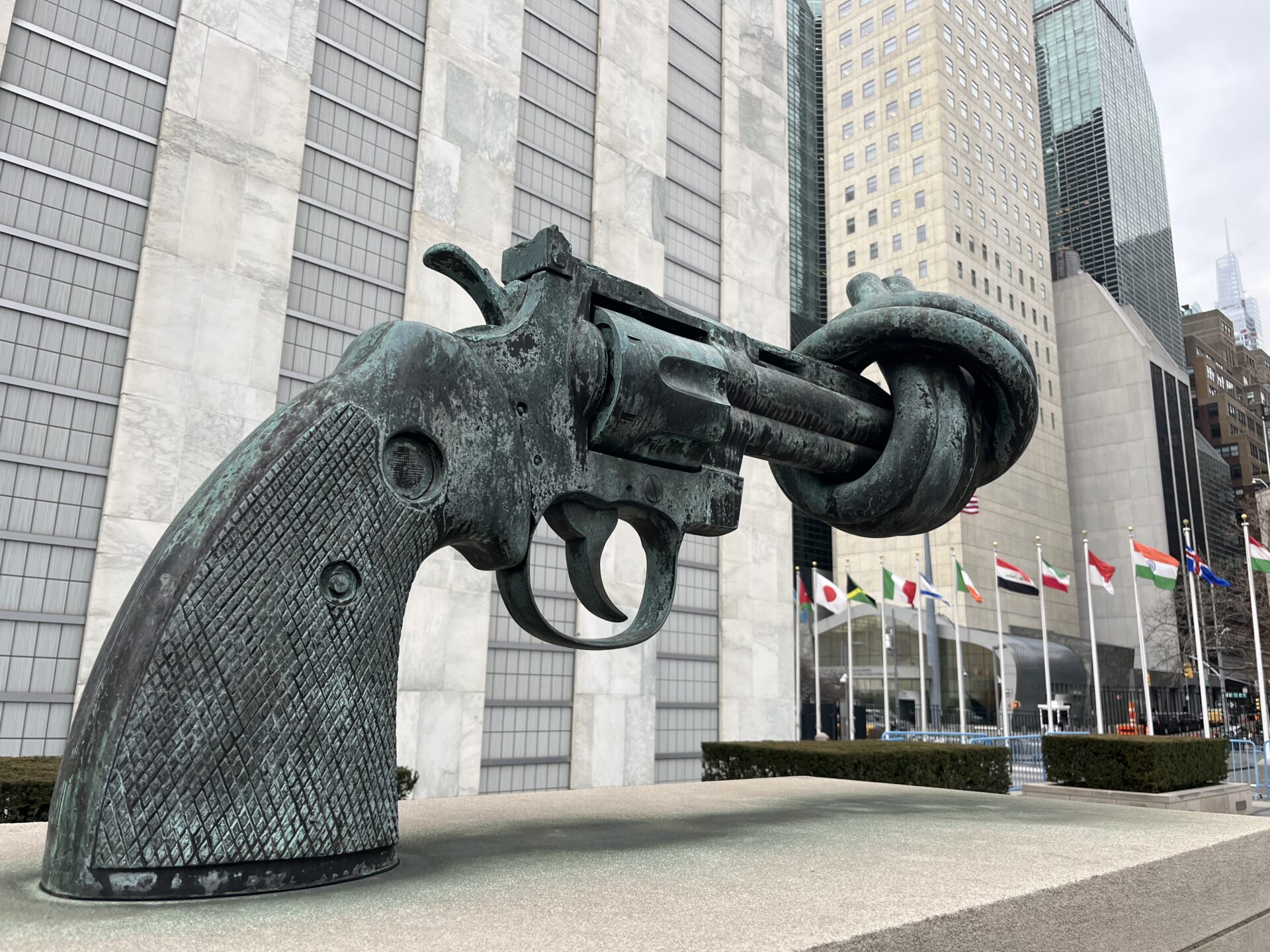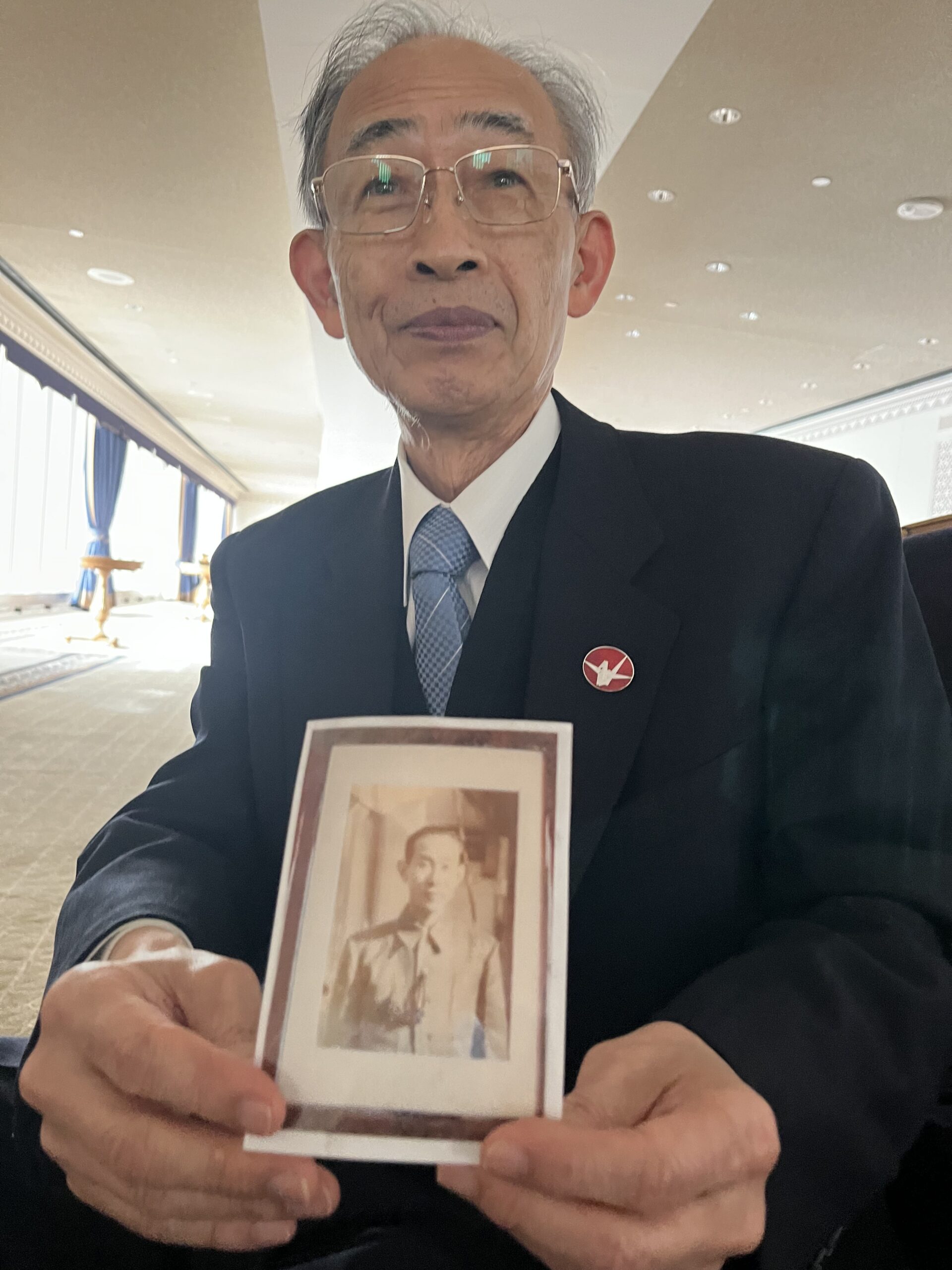“When I consider that today we still have more than 12,000 nuclear weapons, it’s unthinkable.”
Hamasumi was at the UN in March for a week of meetings about the Treaty on the Prohibition of Nuclear Weapons (TPNW). Overlooking the glassy East River, he wonders aloud what it means to possess or use nuclear weapons. “Nuclear armed nations don’t think about it at all, or they ignore it. We hibakusha are the ones who know what happens, and that’s why we think they must never be used again.”
Hamasumi is secretary general of Nihon Hidankyo (Japan Confederation of A-and H-Bomb Sufferers Organizations), which was awarded the 2024 Nobel Peace Prize. He was one of scores of Japanese citizens, including legislators from Japan’s National Diet, who attended the third meeting of states parties to the TPNW.
“The TPNW is an international law that really embodies longstanding wishes of hibakusha,” Hamasumi says. Speaking in Japanese, he quotes the treaty’s preamble, which invokes the unacceptable suffering and harm caused to the victims as well as those affected by the testing of nuclear weapons.
Underscoring the humanitarian consequences of nuclear weapons, Hamasumi mentions other in utero hibakusha whose mothers were exposed to the atomic blast, bearing children who suffered from physical and intellectual developmental delays like microcephaly. Dependent on others their entire lives, those victims, as well as their families, were forced to sacrifice their dreams and futures because of the bomb.
Hamasumi says that the disproportionate impact of nuclear weapons on women and children is clearly acknowledged by the TPNW, demonstrating the value of the treaty. In 2017, 122 countries voted in favor of the nuclear ban treaty which he says embodies the longstanding wishes of hibakusha to see a global ban on nuclear weapons. In contrast, despite widespread public support, the national governments of the world’s nine nuclear armed states and 34 “nuclear umbrella states” do not support or engage with TPNW.
When Hamasumi hears politicians in Russia and Israel make nuclear threats, he thinks back to the moment the atomic bomb was used on Japan. He and other hibakusha were elated when the TPNW entered into force in 2021. But he denounces his own government, along with other countries, which dismiss and avoid any interaction with the treaty.
As the world marks 80 years since the atomic bombings, the number of firsthand survivors is rapidly dwindling. After the last hibakusha is gone, what does Hamasumi hope for?
He likens the sharing of hibakusha stories to the passing of a flame from one lamp to the next, keeping the fire burning without end.
When he has the opportunity to speak with elementary school students, Hamasumi asks them to share his story with their families, and when they grow up, if they have children of their own, to tell them too. He likens the sharing of hibakusha stories to the passing of a flame from one lamp to the next, keeping the fire burning without end.
Reflecting on the past and considering the future, Hamasumi says that 80 years ago, everyone in Japan was wholly consumed by the war. “Those people had to give up their dreams. For people to fulfill those dreams and cherish their lives, there must be peace. I want to say to the world, please listen to hibakusha so that we can achieve a world without war and free of nuclear weapons.”
Cover image: a detail of a mosaic at the UN; a statue dedicated to non-violence outside the UN.
















